Analyzing and Mitigating Risks for Successful Project Outcomes
VerifiedAdded on 2023/04/23
|7
|788
|277
Report
AI Summary
This report provides a comprehensive overview of risk management in project planning and execution. It emphasizes the significance of analyzing project risks while developing a robust software project plan, highlighting that effective risk management involves addressing potential future events that could negatively impact the project. The report details various risk identification methods, including documentation reviewing, information gathering techniques such as brainstorming and Delphi technique, root cause analysis, SWOT analysis, checklist analysis, and assumption analysis. It underscores the necessity of identifying each risk to foster better communication and decision-making among stakeholders. Furthermore, the report addresses a specific risk—changes in project plans—and proposes mitigation strategies, such as periodical meetings with clients and the project team, to promptly address requirements and minimize disruptions. The document concludes by referencing key sources in project management to support its analysis and recommendations. Desklib provides access to this and other solved assignments along with AI-powered study tools to support student learning.
1 out of 7


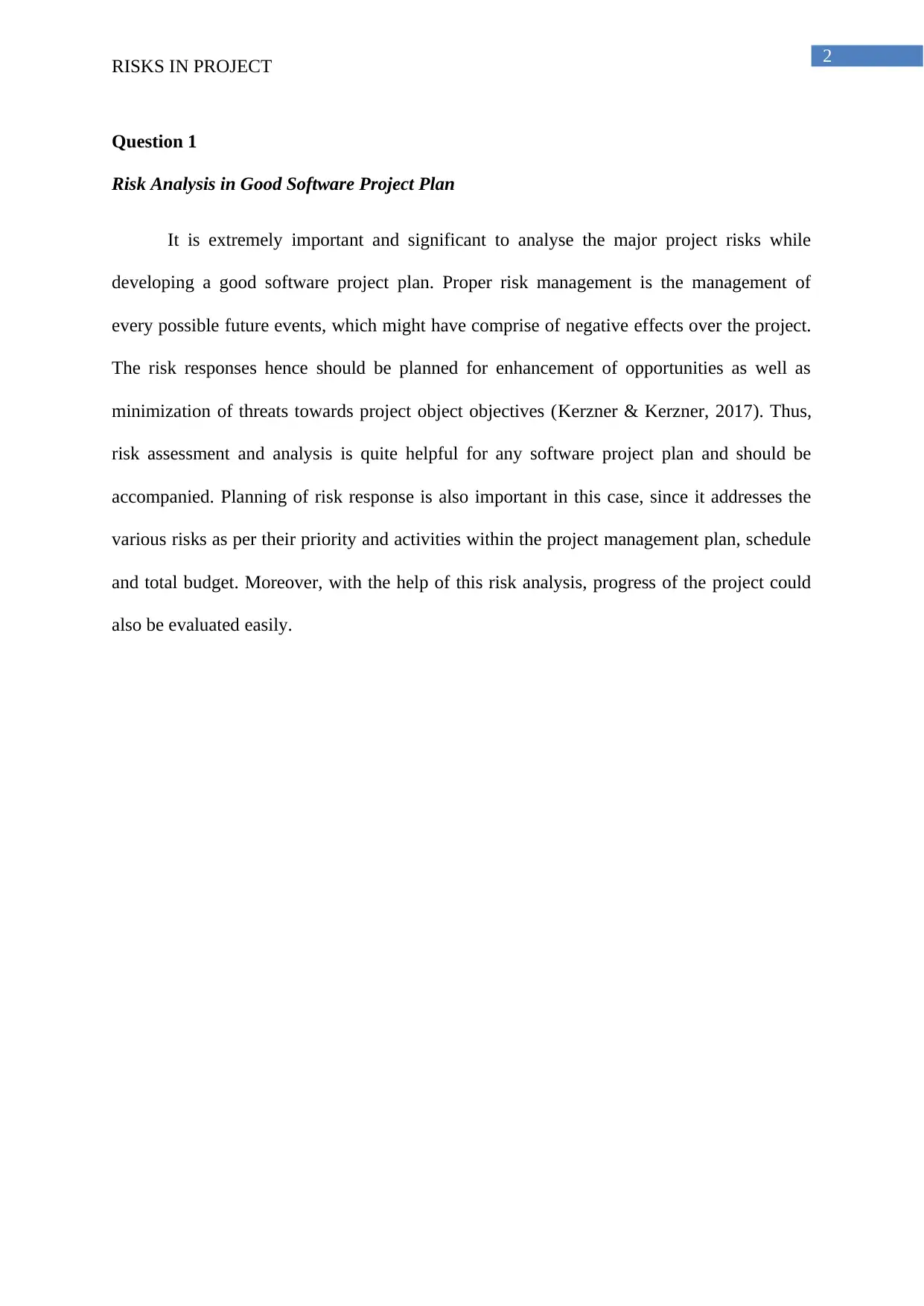

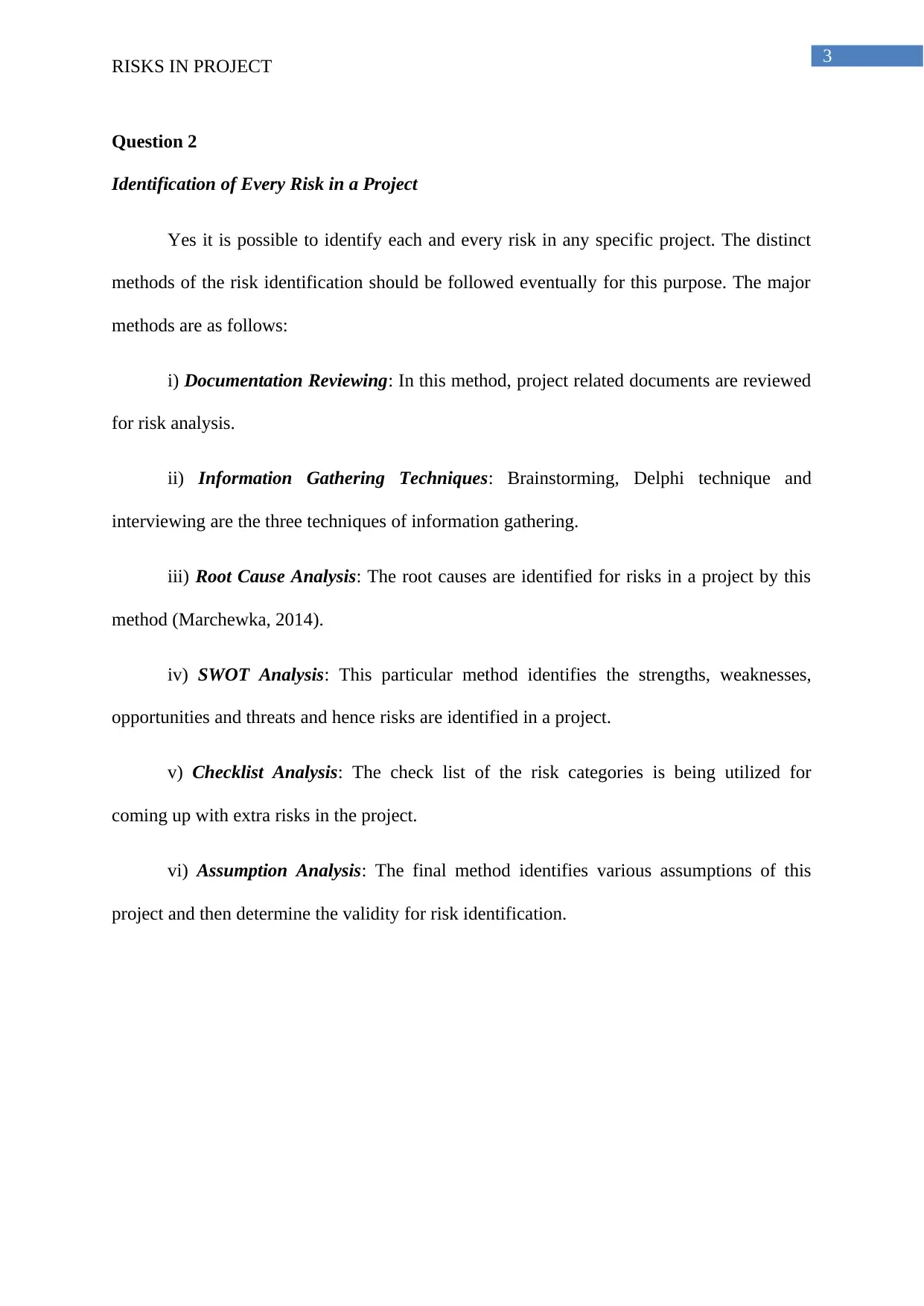
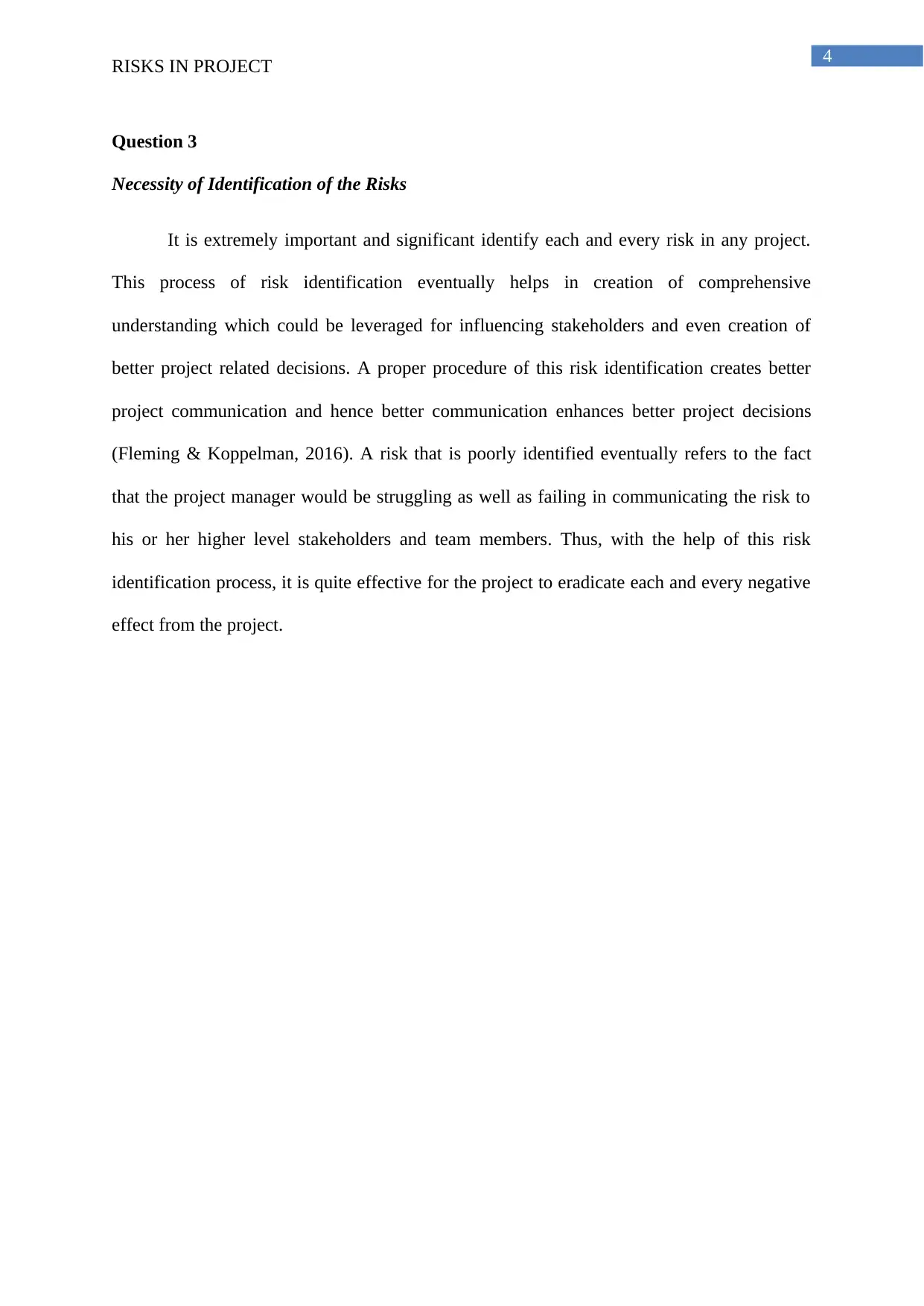
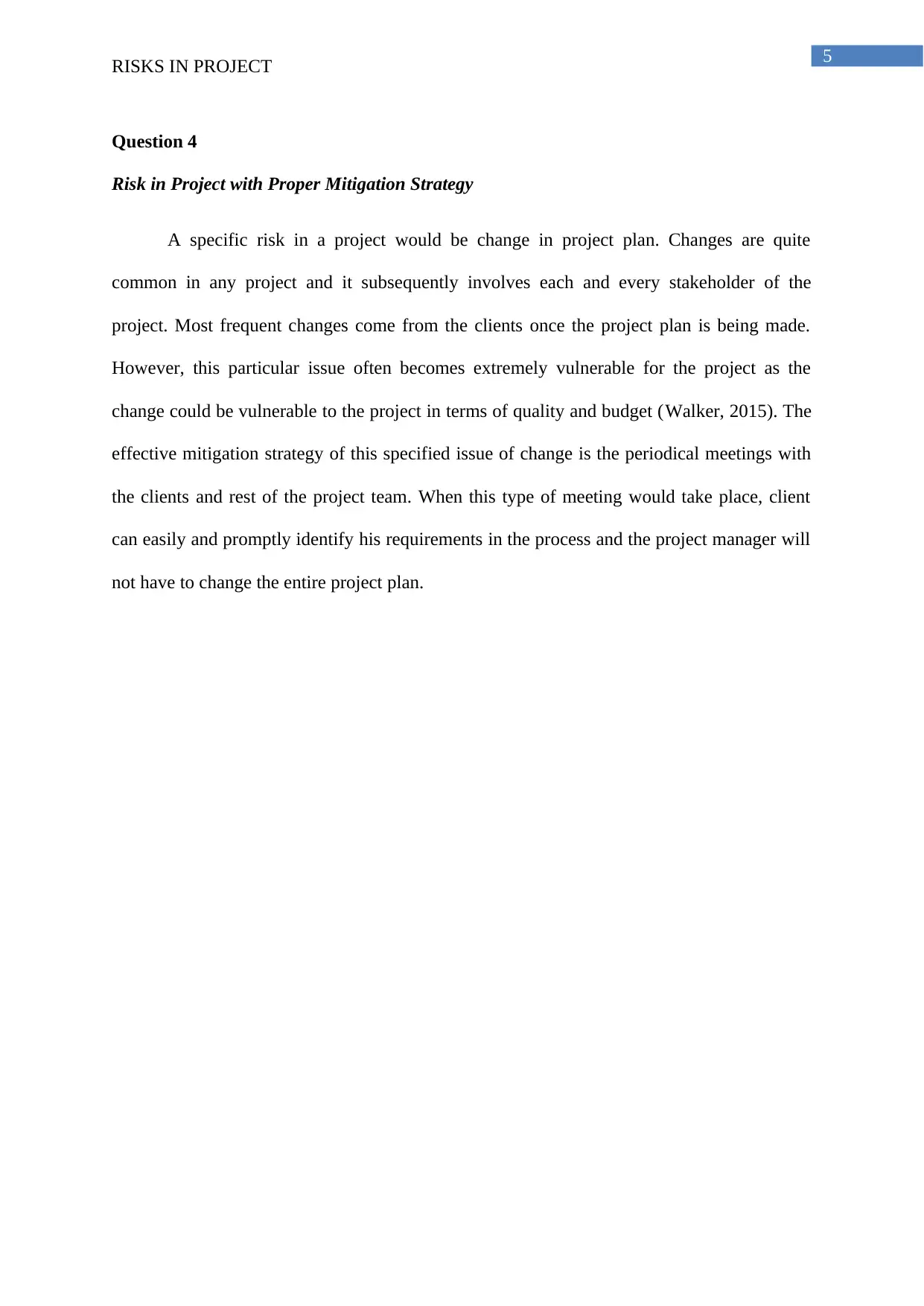
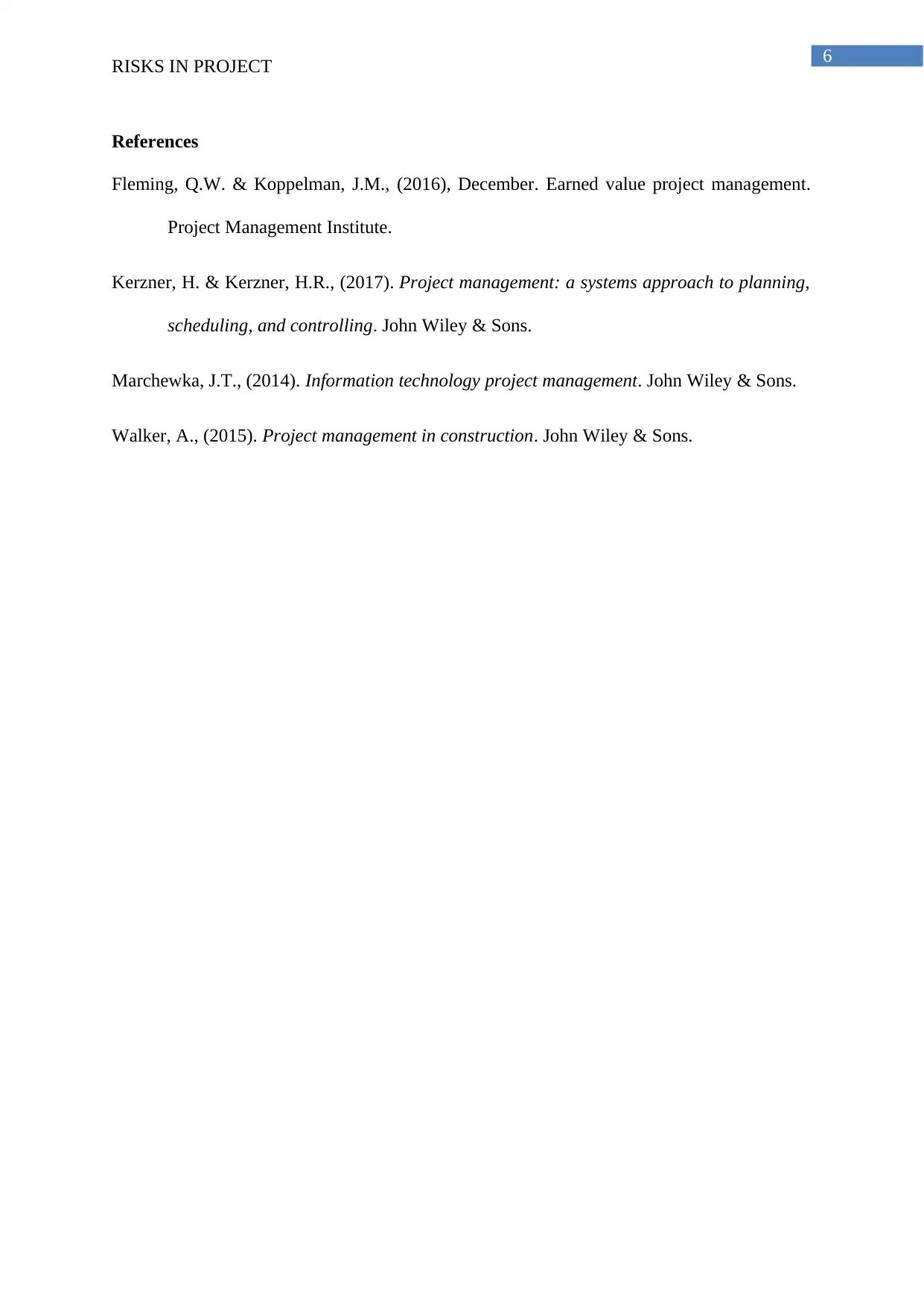






![[object Object]](/_next/static/media/star-bottom.7253800d.svg)